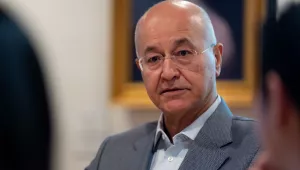Since 1989, there has been a continuing increase in the levels of economic liberalization and an explosion of inter-ethnic, intra-state conflict. For many scholars, this increased level of economic liberalization leads to an externally-derived, unavoidable redistribution of resources, thus increasing not only inter- but also intra-state inequality. Such a rise in intra-state inequality drastically increases the propensity for ethnic conflict.
Using large-N quantitative methods, economics-based scholars, who stress the causal links between factoral models of trade integration and occurrences of state disintegration in multiethnic states, have argued that economic liberalization leads to ethnic conflict because it induces the mobilization of the ethnic groups that can be better off by seceding. Alternatively scholars, who stress domestic-level explanations, have argued that economic liberalization leads to state shrinking, especially of social safety net policies, thus inducing mobilization along ethnic lines and ultimately conflict. Yet, both approaches stipulate that economic liberalization, with its increases in inter- and intra-state inequalities, is positively and linearly linked to ethnic conflict. The empirical record for this conventional wisdom is, however, often spotty and subject to methodological biases, especially in their measurement of economic liberalization.
Utilizing a unique dataset of ethnic conflict cases, quantitative techniques, and case study evidence from Sri Lanka, Malaysia, Bulgaria, and Ethiopia, the seminar presenter will argue that changes in the level of economic liberalization are non-linearly related to the onset of ethnic conflict.
Please join us! Coffee and tea provided.
Everyone is welcome, but admittance will be on a first come – first served basis.


